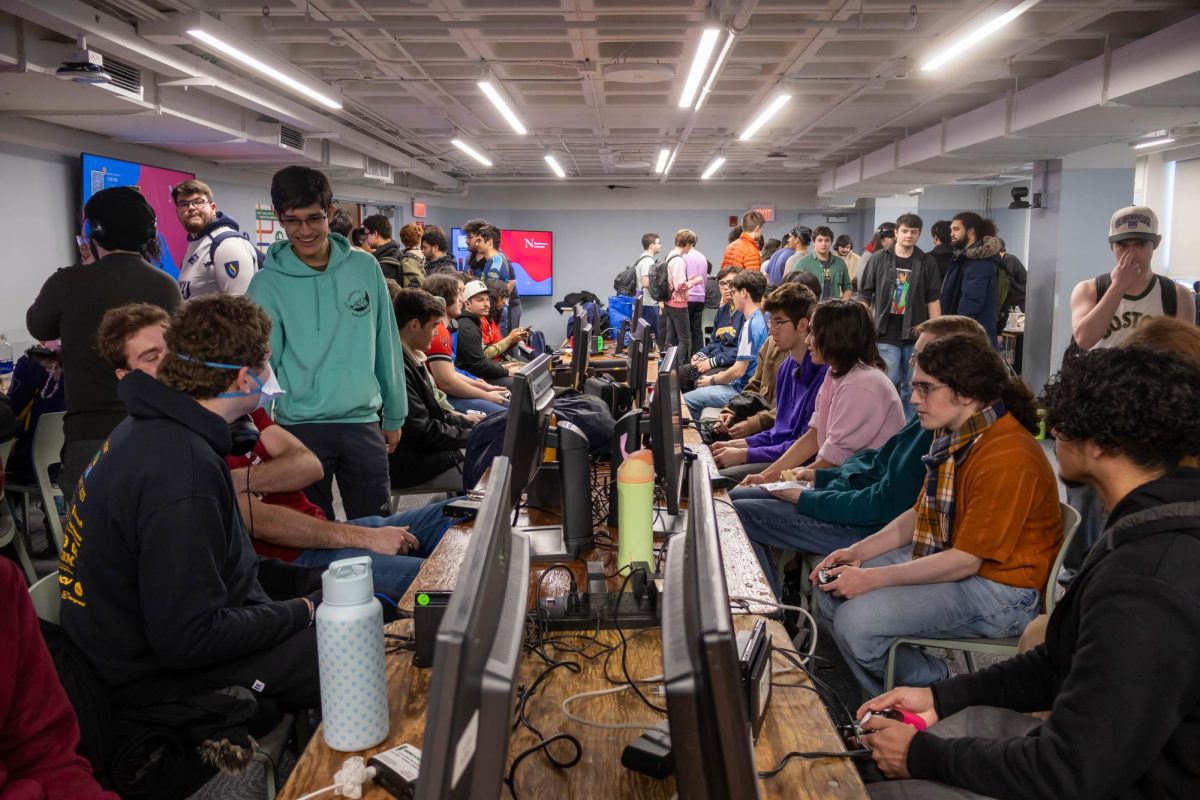By Mary Ann Georgantopoulos and Derek Hawkins
A pair of lecturers from the School of Journalism have followed the fate of four others from the College of Arts and Sciences whose contracts were not renewed by the university last month for not having the highest academic degrees in their field.
Gladys and Lincoln McKie were informed last Thursday that their contracts would only be extended until Dec. 31, said School of Journalism Director Stephen Burgard.
Among the classes potentially affected are “Newsroom Practices,” in which students write and contribute to the New England Press Association (NEPA) Bulletin, a journalism trade publication; “Public Relations Principals” and “Critical Thinking about Public Relations Strategies.”
Besides her role as the only public relations instructor in the department, Gladys serves as an advisor for the Public Relations Student Society of America (PRSSA).
John LeRoy, a senior journalism major and president of Northeastern’s chapter of PRSSA, said most members of the society know Gladys very well as she was always interested in the group.
LeRoy also took classes with Gladys and he said she is responsible for holding together public relations in the journalism department.
“They shouldn’t get rid of [Gladys], they should add more people in addition,” LeRoy said.
Lacey Green, a journalism major who graduated a few weeks ago and who served as vice president of PRSSA, said Gladys was one of the most dedicated people she had met.
“She never missed a single class. Even when she broke her arm and was in a severe amount of pain, she always made it to class,” Green said.
Both Gladys and Lincoln McKie refused comment for this report.
The decision is part of the university’s Academic Investment Plan, a push initiated under former Northeastern President Richard Freeland to expand faculty by 100 tenure and tenure-track professors over five years.
“The colleges are interested in having the best faculty that can do the best job in the classrooms and guide and mentor students,” Provost Ahmed Abdelal said to The News last month.
Jim Stellar, dean of the College of Arts and Sciences, said it is common practice for a lecture to be let go with each new professor hired. Previously, new professors have been hired, but not on a “one for one” basis, Stellar said.
“The ultimate goal is to make the teaching for the students better,” he said. “This is not about the university trying to save money.”
No arrangements have been made yet regarding the future of the NEPA Bulletin, which is mailed to every newspaper member in New England as well as hundreds of press associations, colleges and universities.
“This is an instance of classical institutional reorganization,” he said.
However, some journalism faculty members said they disapproved of the scenario.
Nicholas Daniloff, a journalism professor and former director of the School of Journalism who hired both McKies during his seven-year tenure in the position, condemned the dismissals, which he said have ultimately made him reconsider his relationship with the university.
“This is unbelievably bad administrative management,” Daniloff said. “I have to ask myself, ‘Do I want to work for such heartless and inept university management?’ To see this happen makes me furious.”
Both lecturers, Daniloff said, were practitioners in their fields. When he was hired, Lincoln had served as executive editor of the Lowell Sun newspaper, while Gladys had held several professional graphic design, reporting and public relation positions in New England.
“One of the good things about the School of Journalism is its legacy of practitioners,” he said. “In journalism, experience is of equal importance to book knowledge, and editors probably prefer people with street smarts.”
Journalism professor William Kirtz said he is concerned about finding a professor as “hard-working” as Gladys, adding that it’s “damn hard to get people in public relations and advertising with tenures and Ph.D’s.”
Some faculty from other universities with well-known journalism departments, like the University of Southern California, Northwestern University and the University of Missouri at Columbia (MU) do not have such degrees, Kirtz said.
MU which has one of the country’s most highly-regarded journalism programs, employs at least four faculty members with only a bachelor’s degree, according to its journalism department’s website.
Daniloff said Northeastern, a university known for coupling its academics with work experience through the co-op program, will suffer if the McKies are forced to leave.
“I view this as pressure from the highest level of the university aimed at improving ratings in places like U.S. News and World Report,” he said.
Kirtz agreed.
“The higher-ups don’t get journalism,” he said. “They don’t understand the practical aspect of journalism. There are a lot of areas, such as music and theater, where you want practiced people rather than Ph. D’s.”
Roy Clark, vice president and senior scholar at the Poynter Institute, a nonprofit school for journalists in St. Petersburg, Fla., said that a balance between academics and practice should exist in harmony.
“You want some scholars, some that know the history and can teach it at high academic levels, but you also want people that are outstanding performers and can demonstrate what excellence looks like,” Clark said.
All journalists should work toward improving their work, he said, but each university has the responsibility to make the standards for promotion and tenure clear while informing faculty what is expected.
Poynter Dean of Faculty Keith Woods said there should be a correspondence between academics and practical application.
“It is best if universities have a mixture of professors on faculty, which include those whose research is their primary focus, and where a Ph.D. is essential, and have faculty where practical application is their focus and a terminal degree is not as important as the practice,” Woods said.









